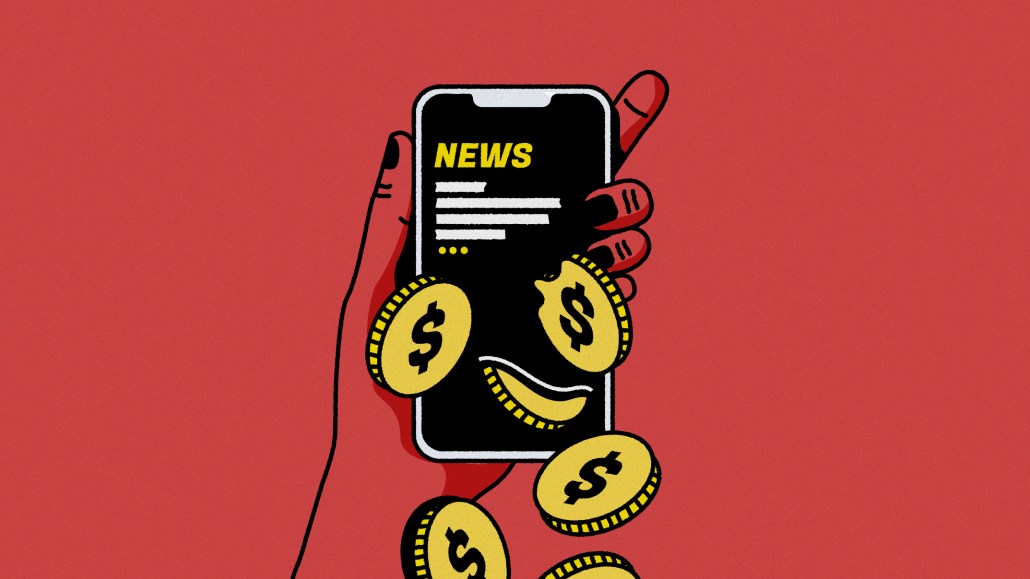From Starbucks to sailing leagues, Web3 loyalty programs are being tested more broadly

As more brands toy with NFT-based loyalty programs, coffee shops and sailboats could soon be the next acid tests for whether the promises of Web3 are compelling enough for users to sign up.
Last week, Starbucks announced the debut of Starbucks Odyssey, which combines the coffee chain’s existing rewards program with a new NFT platform set to launch later this year. Others have also rolled out new NFT-related initiatives for loyalty programs. GameStop, for example, announced new NFT trading cards for its virtual game Gods Unchained that will be available to members of the retailer’s loyalty program. The international sailing competition SailGP also unveiled plans for a Web3-powered loyalty program built in partnership with sponsors Oracle and the blockchain protocol Near.
They’re not the only ones. Last month, Autograph — an NFT startup co-founded by Tom Brady — recently announced a new club that gives fans ways to connect with the NFL star throughout the season via various online and offline events and content. “We have to act as the beacon for the mainstream audience,” said Autograph chief marketing officer Pat Cassidy. “If this works, it’s the blueprint for the future of fandom.”
Rather than simply making money off NFT sales, companies are experimenting with new ways to engage customers over longer periods of time via loyalty programs. Although companies are still building out what these might look like, they could give members access to communities, exclusive content, and new experiences both online and offline.
Daisy Vollans, SailGP’s head of digital and engagement, said certain amounts of points will unlock unique NFTs; a group of NFTs could unlock new activities. The plan is to create initiatives that reward fans as they collect NFTs that can then be used for trading, creating content such as avatars for fans, or having real-life experiences that might otherwise usually be out of reach to the average person.
“At the end of the day, we’re trying to go from closed systems, open systems,” said Chris Ghent, Global head of brand strategy and partnerships at Near Foundation. “So if you’re talking about AmEx points being locked into their world, imagine a world where you could be a superfan of SailGP where those tokens could be swapped for some other type of token or some other type of loyalty program… You can remove the friction between being locked into individual programs.”
Some major brands have also been early adopters of Web3 to protect control of customers, according to Gartner Research analyst Avivah Litan. Meanwhile, others say Web3-based loyalty program promises could also give NFT owners a chance to get more access than typical loyalty programs. Elav Horwitz, global innovation director at McCann World Group, said some memberships are “almost like everyone is part of the digital board of directors.”
“You are going to potentially project influence in the right way that maybe before you only could if you managed to put a sponsorship on a bigger sports group,” Horwitz said. “Now, you can actually influence it now if you buy the NFT.”
Starbucks wasn’t available for an interview about its future plans. However, in a separate interview with Digiday last month, Adam Brotman — the former chief digital officer of Starbucks and current CEO of the customer growth platform Brightloom — spoke with Digiday about the potential of NFT-enabled loyalty programs more broadly. Brotman — who’s also cofounder of Forum3 which helped build Starbucks Odyssey — described Web3 loyalty programs as a “Venn diagram between customer engagement, and next generation loyalty and data and analytics.”
“Once you understand your customer base, and you’ve got segmentation,” he said, “It’s not a far leap to say, ‘Well, how else could you engage with them outside of your traditional loyalty model?’”
Other startups are also working on various Web3-enabled loyalty programs for brands. The NFT brand loyalty startup Hang sees a way for a beer brand like Budweiser — one of Hang’s clients — to find new ways of building loyalty when people buy beer from various places such as gas stations and grocery stores by letting customers get points regardless of where they bought their beer. Meanwhile, the QR code startup Flowcode partnered in July with POAP Inc. — another crypto-enabled startup — to create new ways of letting people earn NFT badges when they visit physical places and events.
“If I asked how many brands have a two-way relationship — and a truly two-way relationship where there’s not a wall — the vast majority don’t have that two-way relationship with consumers,” Flowcode founder and CEO Tim Armstrong said during a recent interview with Digiday.
There’s also the question of whether brands are simply creating new walled gardens or fully embracing the promise of Web3 and the open web that allows people to bring their NFTs wherever they want. According to Litan, the Gartner analyst, a lot of brands aren’t leaning heavily enough into the potential of the technology. So far, she said it seems like Starbucks isn’t doing anything that isn’t already possible with pre-Web3 tech.
“If they let people take this ticket and to go Peet’s and buy coffee, then we’re talking,” Litan said. “… If they’re going to keep the user locked into the Starbucks world, it’s not really innovative.”
More in Marketing

WTF are tokens?
When someone sends a prompt or receives a response, the system breaks language into small segments. These fragments are tokens.

AI is changing how retailers select tech partners
The quick rise of artificial intelligence-powered tools has reshaped retailers’ process of selecting technology partners for anything from marketing to supply chain to merchandising.

YouTube’s upmarket TV push still runs on mid-funnel DNA
YouTube is balancing wanting to be premium TV, the short-form powerhouse and a creator economy engine all at once.








